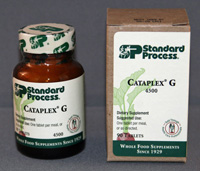Depression Increases Risk of Heart Disease
Dangers Associated With Having More Than Just "The Blues"
There are also multiple studies indicating that heart disease can follow
depression. Psychological distress may cause rapid heartbeat, high blood pressure,
and faster blood clotting. It can also lead to elevated insulin and cholesterol
levels. These risk factors, with obesity, form a constellation of symptoms and
often serve as a predictor of and a response to heart disease. People with
depression may feel slowed down and still have high levels of stress hormones.
This can increase the work of the heart. As high levels of stress hormones are
signaling a "fight or flight" reaction, the body's metabolism is diverted away
from the type of tissue repair needed in heart disease.
Regardless of cause, the combination of depression and heart disease is associated
with increased sickness and death, making effective treatment of depression
imperative. Pharmacological and cognitive-behavioral therapy treatments for
depression are relatively well developed and play an important role in reducing
the adverse impact of depression. With the advent of the selective serotonin
reuptake inhibitors to treat depression, more medically ill patients can be
treated without the complicating cardiovascular side effects of the previous drugs
available. Ongoing research is investigating whether these treatments also reduce
the associated risk of a second heart attack. Furthermore, preventive
interventions based on cognitive-behavior theories of depression also merit
attention as approaches for avoiding adverse outcomes associated with both
disorders. These interventions may help promote adherence and behavior change that
may increase the impact of available pharmacological and behavioral approaches to
both diseases.
Exercise is another potential pathway to reducing both depression and risk of
heart disease. A recent study found that participation in an exercise training
program was comparable to treatment with an antidepressant medication (a selective
serotonin reuptake inhibitor) for improving depressive symptoms in older adults
diagnosed with major depression. Exercise, of course, is a major protective factor
against heart disease as well.
Previous: Depression Can Break Your Heart
Adapted from: Depression Can Break Your Heart
(http://www.nimh.nih.gov/publicat/heartbreak.cfm)
 |
| |
Cataplex G - 90 Tablets - Standard Process |
A powerful B-Complex product that supports a calming effect on the nerves and cardiovascular system.
Read more...
|
|
 |
|
|
 |
|



